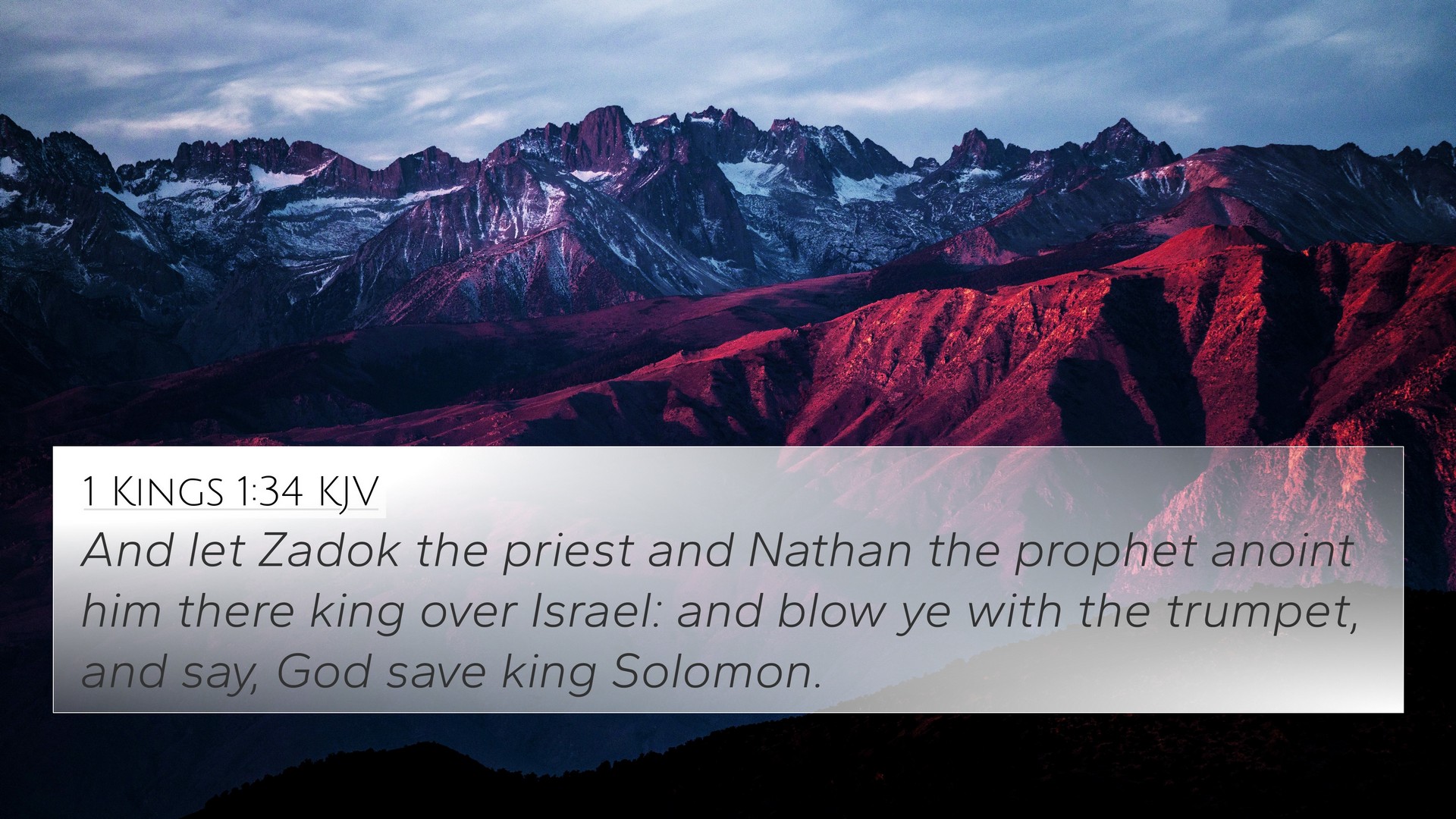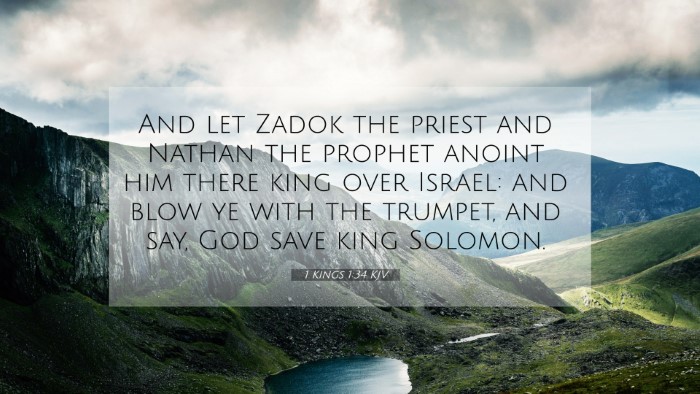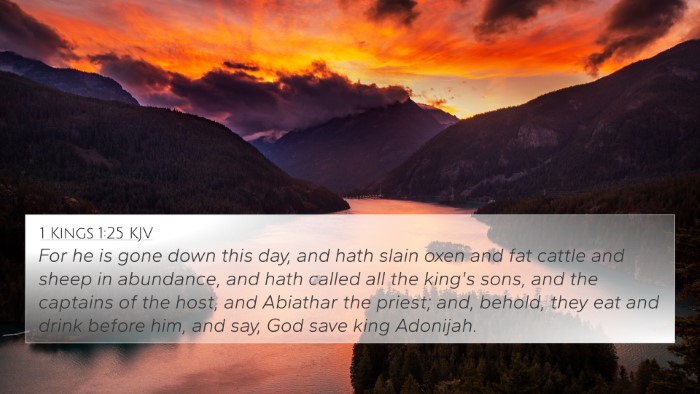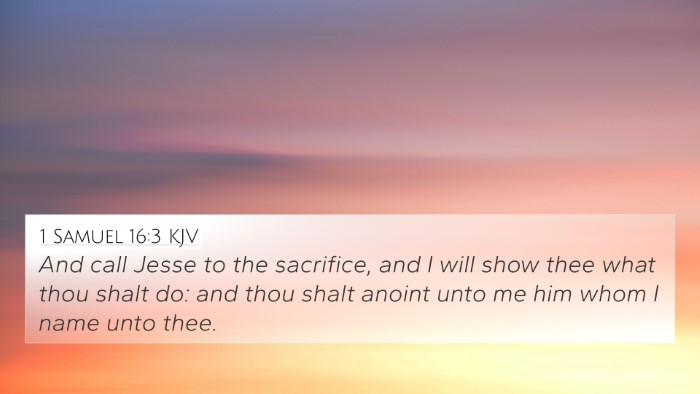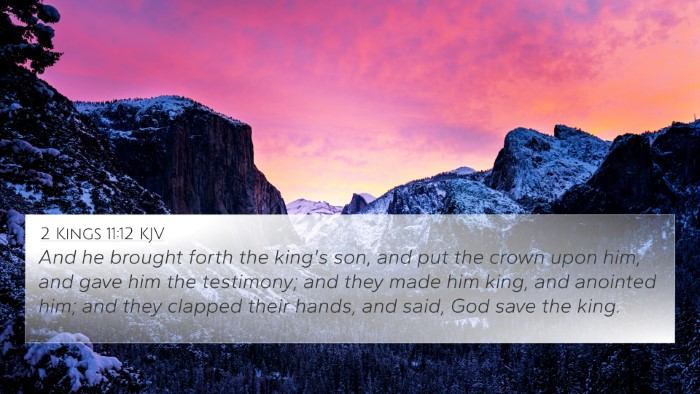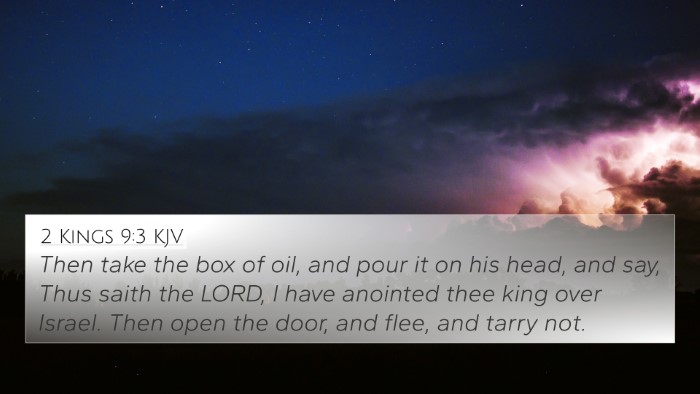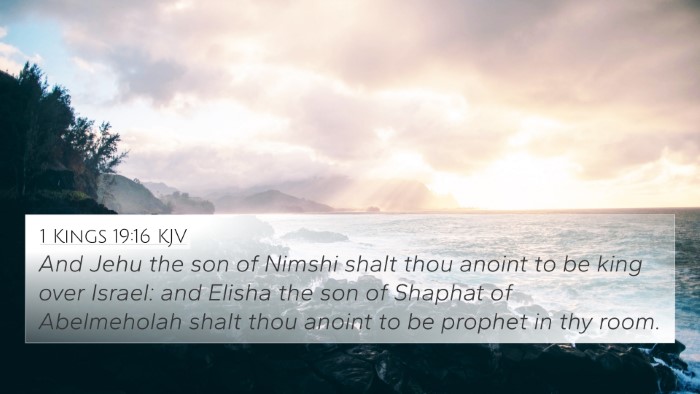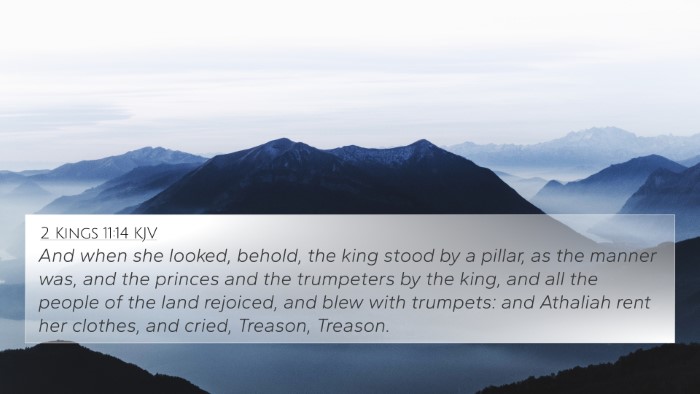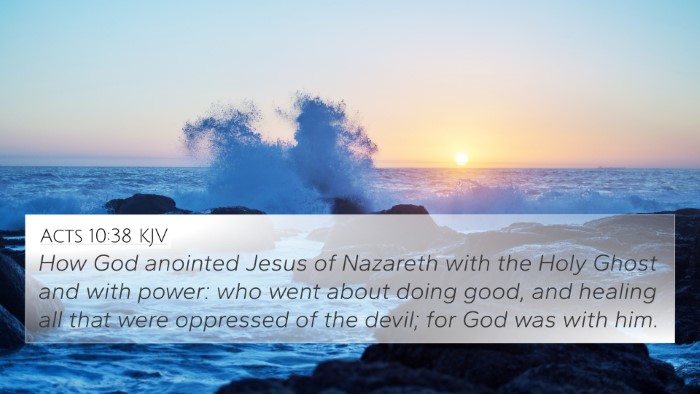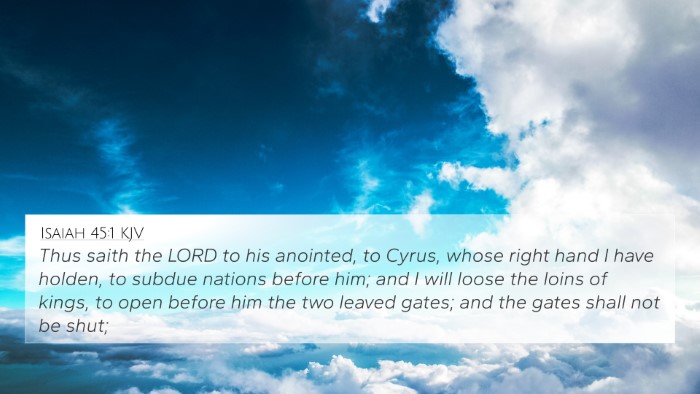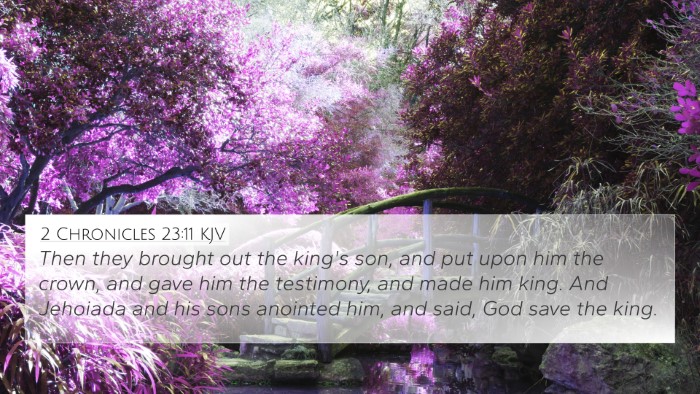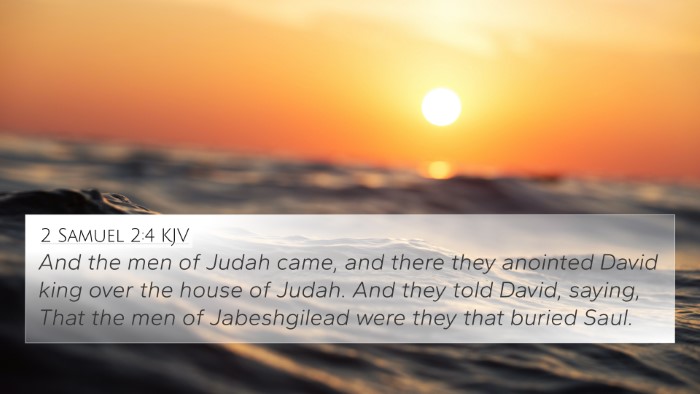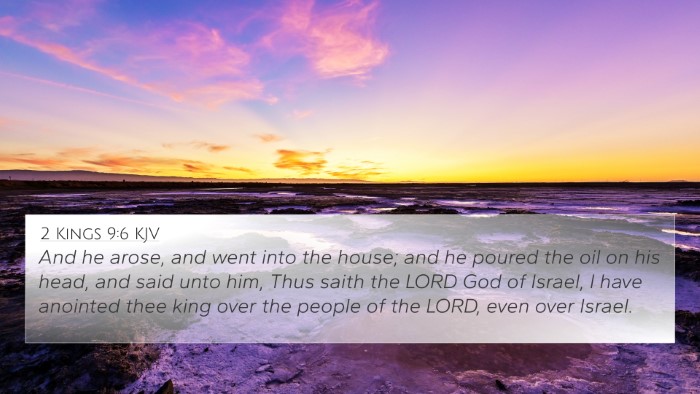Understanding 1 Kings 1:34: An In-Depth Analysis
Bible Verse: 1 Kings 1:34
"And let Zadok the priest and Nathan the prophet anoint him there king over Israel: and blow ye with the trumpet, and say, God save king Solomon."
Overview
In this verse, we witness the anointing of Solomon, the son of David, as king of Israel. This moment is pivotal in the transition of power from David, a significant king in Israel's history, to Solomon, who would become known for his wisdom. The anointing by Zadok the priest and Nathan the prophet signifies God's choice in this leadership transition.
Key Themes and Insights
- Divine Appointment: The act of anointing, performed by Zadok the priest and Nathan the prophet, highlights the sacred nature of kingship in Israel. It emphasizes that leadership is not merely a human decision but involves divine approval.
- Public Declaration: The blowing of the trumpet and proclaiming "God save king Solomon" serves as a public recognition of Solomon's kingship, reinforcing the communal aspect of Israelite leadership.
- Continuity of the Davidic Line: Solomon's anointing ensures the continuation of David's lineage, which is significant in the context of God's covenant with David regarding his descendants ruling Israel.
- The Role of Prophets and Priests: Zadok and Nathan symbolize the vital roles that religious leaders play in the governance of Israel, showing the intertwining of religion and politics in the Jewish context.
Biblical Cross-References
This verse connects with several other scriptures that provide a deeper understanding of the themes presented:
- 2 Samuel 5:3 - The anointing of David as king.
- 1 Chronicles 29:22 - The people acknowledged Solomon's kingship.
- 1 Kings 2:12 - Solomon sitting on the throne of David.
- Psalm 2:6 - God installing His king on Zion.
- 1 Samuel 10:1 - The anointing of Saul, the first king of Israel.
- 1 Kings 19:16 - God's command to anoint Jehu as king, showing the anointing is a divine act.
- Matthew 1:6 - The genealogy of Jesus through David, emphasizing the importance of the Davidic line.
- Luke 1:32-33 - The angel's announcement of Jesus' eternal kingship, paralleling Solomon's anointing.
- 2 Samuel 7:12-16 - God's promise to David about an enduring dynasty.
- 1 Kings 1:39 - The actual action of anointing Solomon with oil, confirming his kingship.
Commentary Insights
Matthew Henry on 1 Kings 1:34
Matthew Henry emphasizes the significance of the anointing and public acclamation in establishing Solomon's kingship. He notes that this act serves to fulfill God's promise to David regarding his lineage. Henry points out that the involvement of both Zadok and Nathan illustrates the collaboration between priestly and prophetic offices, which is essential for a godly leadership in Israel.
Albert Barnes on 1 Kings 1:34
Albert Barnes highlights the importance of this event in the context of the political intrigue surrounding the succession of the throne. He remarks on the wisdom of Solomon being pointed out from the beginning, as this event sets the stage for his reign and the subsequent challenges he would face. Barnes stresses the significance of proper succession in God's plan for the nation.
Adam Clarke on 1 Kings 1:34
Adam Clarke provides insights into the cultural aspects of monarchy in ancient Israel. He explains the rituals and processes involved in the anointing, emphasizing that this was not just a ceremonial act but a deeply spiritual one indicating God's chosen leader for His people. Clarke also supports the view that relief and rejoicing in the nation accompanied Solomon's anointing, reflecting God's favor.
Interconnected Themes
This verse not only illustrates the nature of leadership in Israel but also presents themes of:
- The prophetic voice in guiding and confirming God’s decisions.
- The collective response of the community in accepting God’s chosen leader.
- The enduring covenant of David and its implications for future generations.
Applying Insights for Deeper Understanding
The insights from 1 Kings 1:34 encourage readers to consider how God’s involvement in leadership choices continues to resonate today. The roles of guidance and affirmation by spiritual leaders remain crucial as they provide a framework within which contemporary believers can engage with the divine calling on lives today. Exploring cross-references can enrich your biblical study, providing layers of meaning and understanding that deepen one's faith and comprehension of scripture.
Conclusion
1 Kings 1:34 serves as a foundational moment in Israel's history, marking the pivotal transition of leadership from David to Solomon. The themes of divine appointment, public acknowledgment, and continuity of lineage are central to understanding God’s plan for His people. Engaging with Scripture through cross-referencing and thematic analysis deepens our understanding and reveals the interconnectedness of Biblical texts, enriching our spiritual journey.
For those interested in exploring more about the practices of cross-referencing and understanding Biblical themes, consider utilizing resources like Bible concordances and cross-reference guides which enhance Bible study and sermon preparation.
